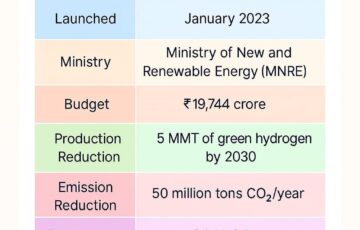The Next Census: Implications for Delimitation and Women’s Reservation
Syllabus:
- GS – 2 – Delimitation , Census , Demography of India
Focus:
- This article explores the importance of the upcoming Census in India, which is likely to take place after multiple delays. The Census findings are crucial for two major political reforms: delimitation of parliamentary constituencies, stalled for five decades, and the recently passed women’s reservation in Parliament. It examines the historical context, challenges, and potential modifications in the Census process, including considerations around caste data collection.
Background of the Census in India
- Census Origin: India has conducted a decadal Census since 1881. The 2021 Census was delayed due to the COVID-19 pandemic.
- Mandate for Census: Conducted as per Item 69 on the Union List, the Census is managed by the central government.
- Tradition of Timing: Although there’s no Constitutional or legal requirement for a ten-year interval, the practice has continued since the British era.
Significance of the Upcoming Census
- Missed Decadal Cycle: 2021 was the first instance of a missed decadal Census due to COVID-19, although the pandemic subsided in 2022.
- Impact on Policy Decisions: Key decisions related to political representation and women’s reservation depend on Census data.
- Implications for Future Censuses: The delay may also have implications for the 2031 Census timeline.
The Delimitation Process
- Constitutional Mandate: Delimitation, mandated by the Constitution, ensures equal representation by adjusting constituencies based on population.
- Historical Suspension: The process has been suspended since 1976 due to political disagreements, particularly on inter-state population growth discrepancies.
- Implications of 84th Constitutional Amendment: Delimitation was put on hold until a Census conducted after 2026, meaning even a 2021 Census would not have triggered delimitation.
- Regional Concerns: Southern states, with lower population growth, fear a reduction in parliamentary seats in favor of northern states with higher growth.
Timeline and Process of Census in India
- Two-Step Process:
- House-Listing and Numbering: Takes place in the year preceding the Census.
- Population Enumeration: Conducted in February, with a follow-up in March for adjustments.
- Preliminary and Final Data Release: Preliminary population data is available within months, with detailed results taking 1-2 years.
Challenges in Delimitation After the Census
- Amendment Requirement: The language of the 84th Amendment specifies the need for data from a Census “taken after 2026,” so a Census completed by 2026 may require further amendments to enable delimitation.
- Political Disagreements: The suspension was due to political disagreements, with southern states opposing adjustments that might reduce their representation.
Women’s Reservation and the Delimitation Link
- 128th Constitutional Amendment: Approved by Parliament, it reserves 33% of seats in Lok Sabha and State Assemblies for women.
- Dependency on Delimitation: The women’s reservation will be implemented after a new delimitation adjusts seats.
Demand for Caste Data in Census
- History of Caste Data Collection: Caste data was collected until 1941; post-1951, only Scheduled Castes and Tribes data were recorded.
- Recent Demand for Caste Census: Some political parties advocate for caste data to aid in resource allocation and social justice measures.
- Potential to Incorporate Caste Data: Including caste data in the upcoming Census could eliminate the need for a separate caste census.
The Role of the Finance Commission
- 16th Finance Commission: Set to report by the end of next year, its recommendations on financial devolution could affect political consensus on delimitation.
- Consideration for Southern States: Compensatory measures for southern states could be part of the Finance Commission’s recommendations to balance resource allocation amidst representation concerns.
Associated Article
https://universalinstitutions.com/tag/no-population-census-in-the-dark-without-vital-data/
Source: Indian Express
Mains UPSC Question GS 2
Discuss the significance of the Census for parliamentary constituency delimitation and the implementation of women’s reservation in India. What challenges could impact these processes, and how might the upcoming Census address demands for caste data?” (250 words).





